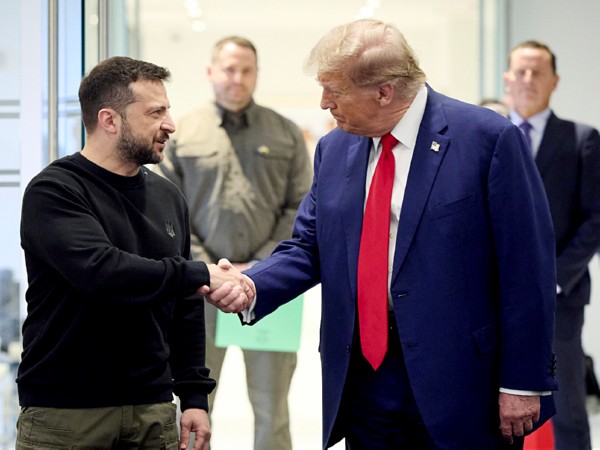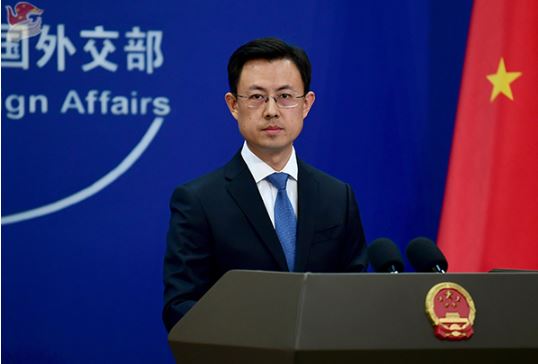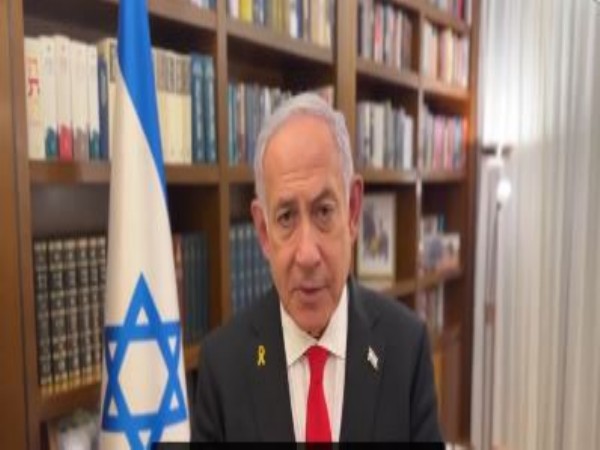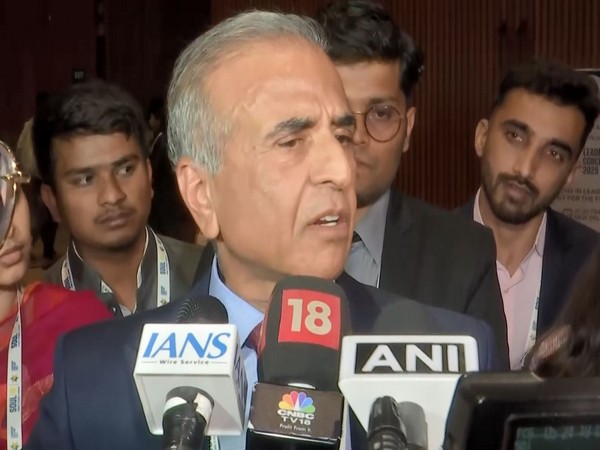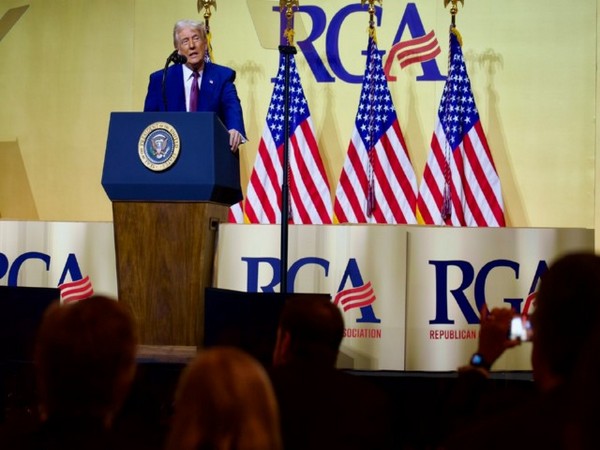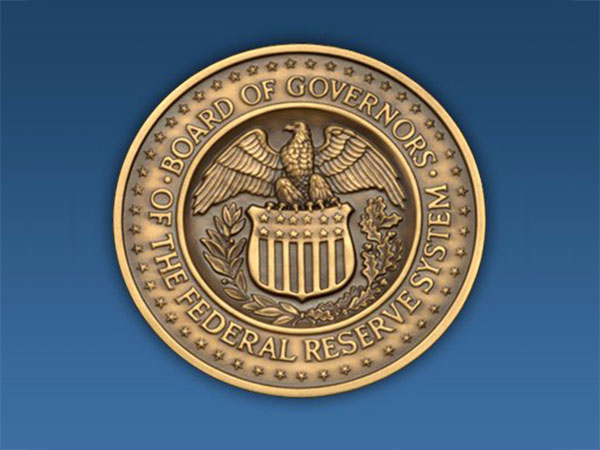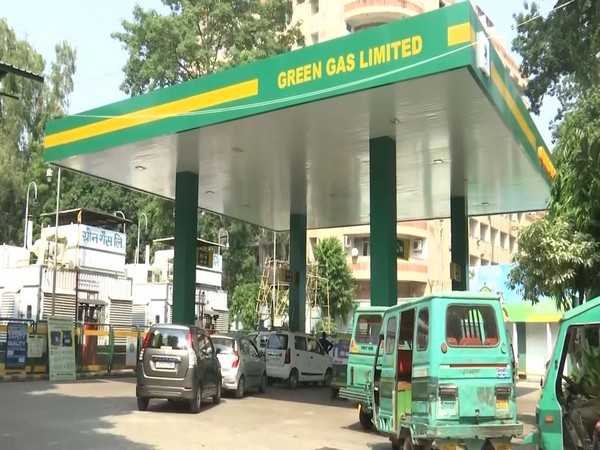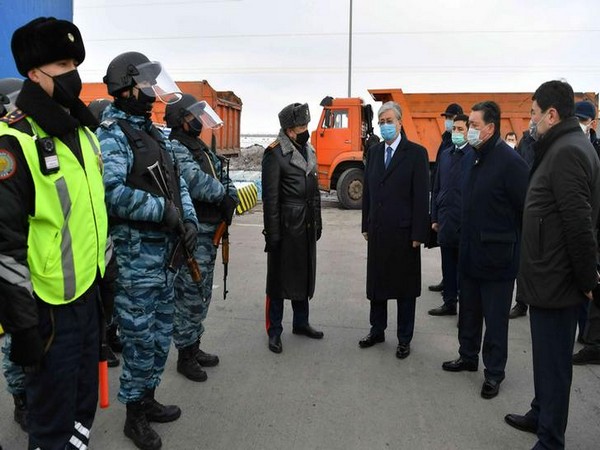
Kazakh President Kassym-Jomart Tokayev in protective masks visits a checkpoint, set up to lock down Nur-Sultan to prevent the spread of coronavirus disease (COVID-19), on the outskirts of Nur-Sultan, Kazakhstan March 19, 2020. Kazakh Presidential Press Service/Handout via REUTERS ATTENTION EDITORS - THIS IMAGE WAS PROVIDED BY A THIRD PARTY.
Nur-Sultan [Kazakhstan], Mar 26 (ANI): The Kazakh government has implemented a series of proactive measures over the past two months to address the outbreak of the novel coronavirus that has infected more than 416,000 people globally. At the beginning of the COVID-19 outbreak in January, the special governmental commission created an action plan to protect the population in advance. By February, the country started blocking national borders for some foreign countries with high epidemic danger, and all the citizens were advised to avoid any trips abroad. Later on March 15, President Kassym-Jomart Tokayev declared a state of emergency across the nation.
In his decree, the President stated that entry to and departure from the country is to be restricted for everyone except for diplomats and official delegations, those invited by the Government and foreigners under certain conditions. In addition, the decree introduced quarantine measures and suspended the activities of shopping and entertainment centres. Kindergartens, schools, and universities have been closed as per the recommendations of medical experts. On March 23, President Tokayev addressed the State Commission on the current state of emergency. To prevent a further wave of infection, the President introduced increased quarantine measures to protect the citizens of Kazakhstan.
In a move to impose more stringent measures, the President has further ensured the protection of the country’s medical services whilst reducing the threat to those citizens most at risk. Kazakhstan has so far been less impacted than other countries in terms of confirmed coronavirus cases, despite a long land border with China, where the first cases of the disease were identified. In fact, when the government measures were first announced, there were only a handful of confirmed COVID-19 cases in Kazakhstan . However, as the situation in other countries has demonstrated, it is vitally important to take strict preventive measures, regardless of the number of people affected.
Complacency has certainly not been an option for the Government of Kazakhstan . In order to prevent the virus from spreading widely and to protect the lives and health of its citizens, steps had to be taken even though the country has not yet experienced the spread of the virus on a large scale. In preparation for such a crisis, the President ordered the Ministry of Health to monitor the availability of medical facilities and equipment taking into account the most drastic of potential pandemic outcomes. Such moves will ensure Kazakhstan ‘s medical services are prepared for every eventuality.
However, as was expected, the number of confirmed cases has risen in Kazakhstan ‘s two biggest cities – its capital Nur-Sultan and the most populous city Almaty. In view of the same, on March 23, the Kazakh president took a decisive step to lock down the two cities. Other than restricting the movement of people and vehicles, authorities have limited public transportation and instructed restaurants to switch to delivery-only service. The aim of these measures is to prevent the disease from spreading to other parts of the country, and thus save lives and prevent a health crisis.
To enforce the isolation of these city centres, the President announced the need to impose penalties on those who choose to violate the requirements of quarantine. The Government’s highest concerns lie with the health and safety of the citizens of Kazakhstan . In such a time of emergency, it is important to provide more security in a period of crisis. In view of the same, on March 23, the President announced that the nation’s entire police force will now be mobilised to protect the population against unexpected public threats. In addition to the increased police presence, President Tokayev has called for residential communities to cooperate and work together to safeguard at-risk individuals. In such times as these, there is a danger that certain groups of society will be affected more drastically than others. Those most at risk are families who have lost sources of income and have no economic ‘safety net’. In his statement at the State Commission, the President addressed these concerns; in addition to the already adopted ban on imposing fines and penalties, the payment of principal and interest on all loans of the population affected by the crisis will be suspended.
In addition, large families, people with disabilities and other socially vulnerable groups will receive free groceries, consisting primarily of domestic products. To further support this, President Tokayev announced initiatives to regionally monitor the levels of socially significant goods in order to protect the population from price spikes. Governors will coordinate the interregional flow of such goods to eliminate local deficits and prevent the panic-buying of essential goods. The Government of Kazakhstan has put forward concrete measures to support the financial sector. President Tokayev announced that Kazakhstan will allocate $10 billion for anti-crisis measures throughout the country, excluding tax benefits and local support. USD 740 million will go towards measures to boost employment.
Bonus payments will be made in the amount of one month salary to doctors, police officers and other specialists involved in the fight against coronavirus, as well as to people who have lost income due to the state of emergency. To support enterprises, the Head of State ordered a standstill on bank loan repayments by small and medium-sized businesses for the duration of the state of emergency, as well as a deferral of payment of all types of taxes and other obligatory payments for a period of three months. In his address on March 23, President Tokayev highlighted the necessity of entrepreneurship in the fight to maintain economic harmony. He announced new measures that will reduce fiscal pressures on these individuals.
This will see tax deadlines extended and the removal of oppressive inspections. Such alleviations will see businesses have a greater ability to make decisions and take responsibility for their commercial activities. In addition to this, the President announced an additional $1.5 billion for lending to such businesses for working capital. Across the world, there have been instances of widespread panic due to a lack of direct information flow from national governments. To protect the citizens of Kazakhstan against such dangers and the resulting effects of rumour, the President has facilitated the Ministry of Information and Public Development to deliver daily briefings.
To reinforce these messages the website coronavirus2020.kz has been set up to inform the population of the Government’s official actions in the fight against coronavirus. Everyone will have to get used to the new reality for perhaps many weeks to come. It may not be straightforward, but through cooperation, both on an individual and state level, the country is well equipped to overcome the crisis. As President Tokayev stated this week, “if each of us fulfills our duty with responsibility, I believe that we will quickly come out of this difficult situation.”
Thus, even being located close to large geographic coronavirus outbreaks in Eurasia fast and proactive actions by the Government of Kazakhstan resulted in a relatively low number of infected citizens and full control over the COVID-19 epidemic. Kazakhstan has always pushed for closer regional and global cooperation. The pandemic has laid bare the vital need for teamwork between states. Hopefully, governments around the world will collaborate closely to control the pandemic and will continue to work together once the crisis is over to resolve other global issues. Perhaps this will be the silver lining to these challenging times. (ANI)
